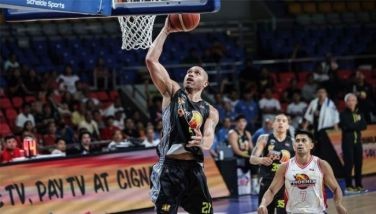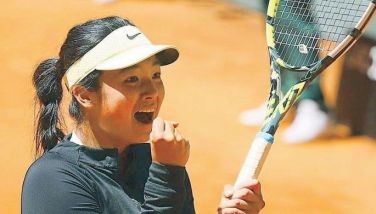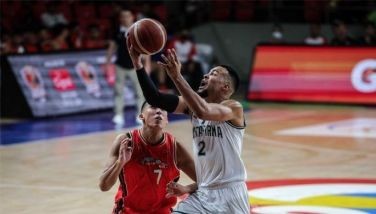Crisis in horse racing
Horse racing is called the sport of kings, a heart-pounding, large-scale thrill enjoyed by the masses. It combines man and steed in an explosive display of power, with the added adrenaline fuel of wager. However, the Philippine horse racing industry has been bleeding financially for years, bringing in dramatically lower revenues for the national government. Industry members, from horse owners down, are calling for the President to get involved, many silently or anonimously, supposedly out of fear of reprisal.
The Philippine Racing Commission (Philracom) was established in 1974 by a Presidential Decree of President Ferdinand Marcos. The pertinent section of P.D. 420 states that it is designed to “promote and direct the accelerated development and continued growth of horse racing not only in pursuance of the sports development program but also in order to ensure the full exploitation of the sport as a source of revenue and employment.” Philracom is directly under the Office of the President. Other professional sports are supervised by the Games and Amusements Board.
For 2014, Philracom’s annual sales was a robust P8.2 billion. Since February of 2015, the agency has been chaired by Andrew Sanchez. That year, sales declined to P7.7 billion, a drop of half a billion pesos. In 2016 and 2017, sales dipped to P7.2 billion and held at P7.3 billion, respectively. Last year, Philracom brought in a mere P5.5 billion, despite the reported infusion of P110 million from the Department of Budget and Management.
Ironically, it is in presumed conservative Asia where horse racing is booming. Japan, Hong Kong, Singapore, South Korea, Macau and Malaysia are among the most successful in the world. In the Philippines, it’s gotten so bad that many horse owners are getting out of the game. For the last three years, they have been selling their horses for a fraction of their value, or retiring them and putting them out to stud. Only the wealthiest remain active in throwing money into the sport. The dwindling winnings make it difficult to justify the high maintenance costs for these magnificent beasts.
Less horses mean less work for jockeys, trainers, veterinarians, farriers, groomers, utility men, the entire caboodle of manpower needed to keep horses healthy and happy. But whereas the other industry workers may possibly adapt to care for other animals, where would jockeys go? Pound for pound the world’s strongest athletes, their small stature and light frames make them ideal for little else. These tiny strongmen powerfully steer a galloping stallion roughly the weight of a car, and that relationship of trust takes time to build. Some of the country’s respected jockeys have migrated to the Middle East to be mere exercise jockeys or even stable hands to be able to support their families.
The Commission on Audit (COA) has already scored the Philracom leadership, as it has repeatedly demanded the return of questionable expenses, including fuel costs credited to the relative of one of its consultants. In an audit of Philracom’s 2016 finances, the agency discovered close to P9.4 million worth of unauthorized disbursements with no legal basis. The amount was traced to Philracom’s P70 million Horse Racing Incentive program. Auditors reported that the amount had been “paid without basis and disbursed in a manner that deviates or departs from” government accounting standards. Roughly P4.8 million was distributed among officials, employees, contractual workers and even consultants as allowances for meals, educational assistance, anniversary bonuses and even birthdays. Another P2 million was consumed for personal use of officials. The amount of over P6.8 million was allegedly reimbursement of fuel expenses of the relative of an official. These facts have already been reported by the print media.
This year, the COA again asked Philracom to return P7 million in illegal expenditures. Over half was reportedly spent by Chairman Sanchez, the balance by his six commissioners. The disallowed expenses allegedly listed included foreign travel, perfumes, gift certificates, Christmas celebration, illegal overtime for employees, drinks and gifts to government officials. If they’re spending all this money wrongly, who’s minding the store?
There are other factors that have hurt horse racing, to be sure. Increased entertainment taxes definitely had an impact. Also, the last few years have seen the wild growth of electronic cockfighting or e-sabong, which is, ironically, being broadcast through mainstream off-track betting stations. While horse racing has been hemorrhaging, e-sabong has supposedly ballooned from hundreds of millions to well over P10 billion in revenue. It thrives in an unregulated gray area or loophole in the law that legislators have not found a stopper for.
There is also the growth of streaming services and similar forms of on-demand entertainment that have taken slices of the pie. In 2017, the number of Filipinos who consumed television or video content through a mobile device breached 50 percent. Availability and convenience are now primary considerations for the viewing public. Still, these do not totally explain such large, consistent drops in Philracom’s revenue.
These are the broad strokes, but there is obviously something ineffective about how the horse racing industry is being regulated and run. Changes have to be made from within before irreparable damage is done to this noble sport. If not, then President Duterte should just clean house and give it a fresh start, as he has done with many other government agencies.
- Latest
- Trending































